2017 was a rollercoaster of a year and Southeast Asia was not spared from the ride. To commemorate the year as it draws to a close, The ASEAN Post would like to take readers on a journey to revisit key events and happenings in this region throughout 2017.
JANUARY
January was not all about Trump's inauguration. We started the year with the Philippines helming the Association of Southeast Asian Nations (ASEAN) with the theme, “Partnering for Change Engaging the World” reflecting the country’s ambitions for a united ASEAN together with its global partners. Manila was fortunate to be chairman during ASEAN’s 50th anniversary – a huge milestone for an association that many critics claimed would fall into obscurity after the Cold War.
The humanitarian crisis in Myanmar’s Rakhine state was still a thorn in ASEAN’s flesh. Bangladesh revived the idea of transferring refugees to an island in the Bay of Bengal. The notion was met with much criticism as the island was almost uninhabitable.
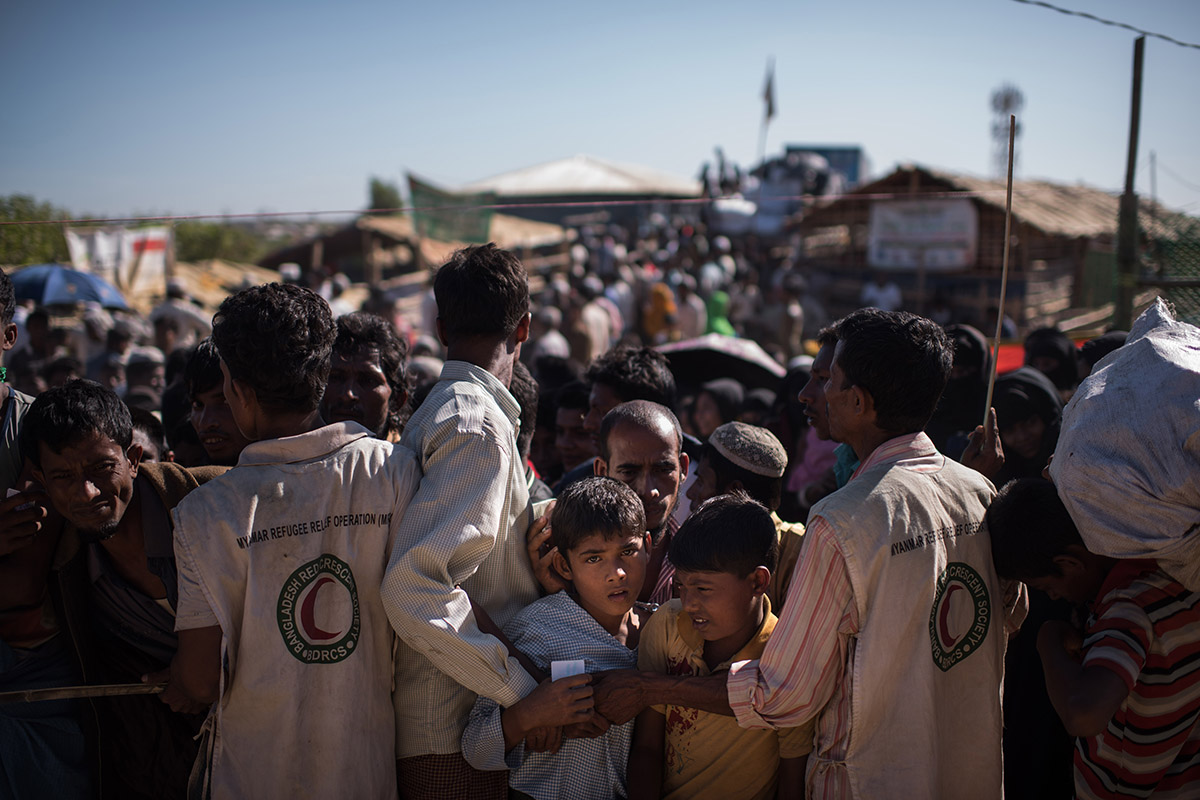
Rohingya Muslim refugees children queue for aid suplies at the Kutupalong refugee camp in Cox's Bazar on December 4, 2017. (AFP Photo/Ed Jones)
In energy news, Ceri Powell, Head of Exploration for Royal Dutch Shell stepped down after seven years in that position to become Managing Director of Brunei Shell Petroleum (BSP) – the largest oil and gas producer in Brunei Darussalam. BSP recovers oil and gas from more than 4,500 individual reservoirs and supplies them to numerous countries like Indonesia, Australia, Korea and Japan. It has more than 200 offshore structures, linked by upwards of 5,000km of pipelines.
FEBRUARY
In February, the world was rocked by the brazen murder of Kim Jong Nam – half-brother of North Korea’s ruling despot, Kim Jong Un – in Malaysia’s Kuala Lumpur International Airport (KLIA). Jong Nam was attacked by two women using a lethal and banned chemical weapon, VX nerve agent. His murder was speculated to have been ordered by Pyongyang which has vehemently denied it. Diplomatic relations between Malaysia and the hermit kingdom soured greatly after the incident with both sides exchanging expelling the other’s ambassadors to their country.
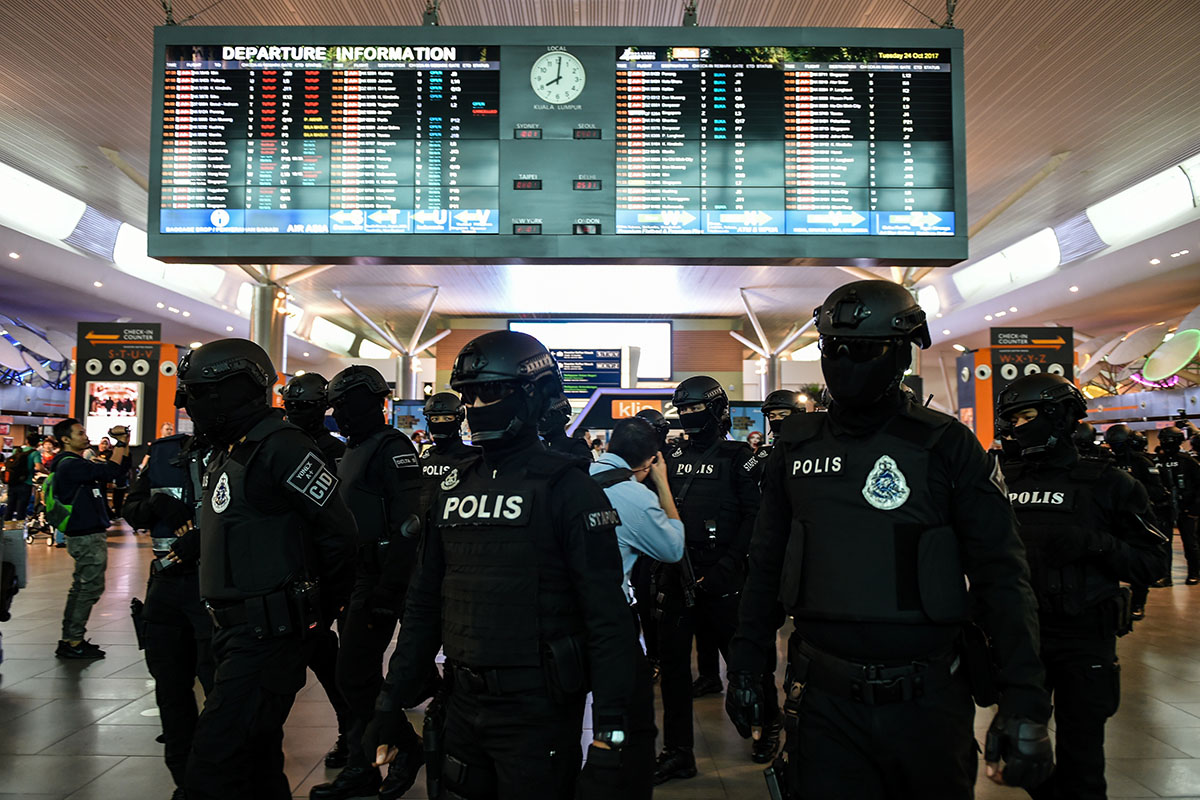
Malaysia's Special Task Force On Organised Crime (STAFOC) arrive to provide security at the low-cost carrier Kuala Lumpur International Airport 2 (KLIA2) during a visit to the scene of the murder as part of the Shah Alam High Court trial for Indonesian defendant Siti Aisyah and Vietnamese defendant Doan Thi Huong on October 24, 2017. (AFP Photo/Mohd Rasfan)
Malaysia sought to reopen the case files of the Pulau Batu Puteh dispute with Singapore – which saw the latter awarded with the island in 2008. This time, Malaysia cited three documents found in the National Archives of the United Kingdom that they claim could make the International Court of Justice (ICJ) “reach a different conclusion on the question of sovereignty” over the disputed island. Singapore responded by assembling a legal team to look into its neighbour’s claim.
China’s ambitious Belt Road Initiative (BRI) reached the shores of Southeast Asia. In late February, a joint venture company formed by China's Guangxi Beibu Gulf Port Group and Brunei's Darussalam Asset assumed operation of Brunei's largest container terminal.
MARCH
China continued its sprawling BRI plans by starting construction on the China-Lao railway. The project which has been heralded as key to the relations between both nations would run from Boten, a Lao town bordering China’s Yunnan Province, and Lao’s capital, Vientiane. The 414-kilometre railway is slated to be complete by 2021 and will drastically improve land connectivity between both nations.
In Vietnam, officials turned to South Korea for support in facing China’s sweeping claims to the South China Sea. Seoul is Hanoi’s biggest foreign investor. Vietnam is one of four ASEAN claimant nations to the disputed South China Sea maritime features and has been openly hostile to Chinese claims.
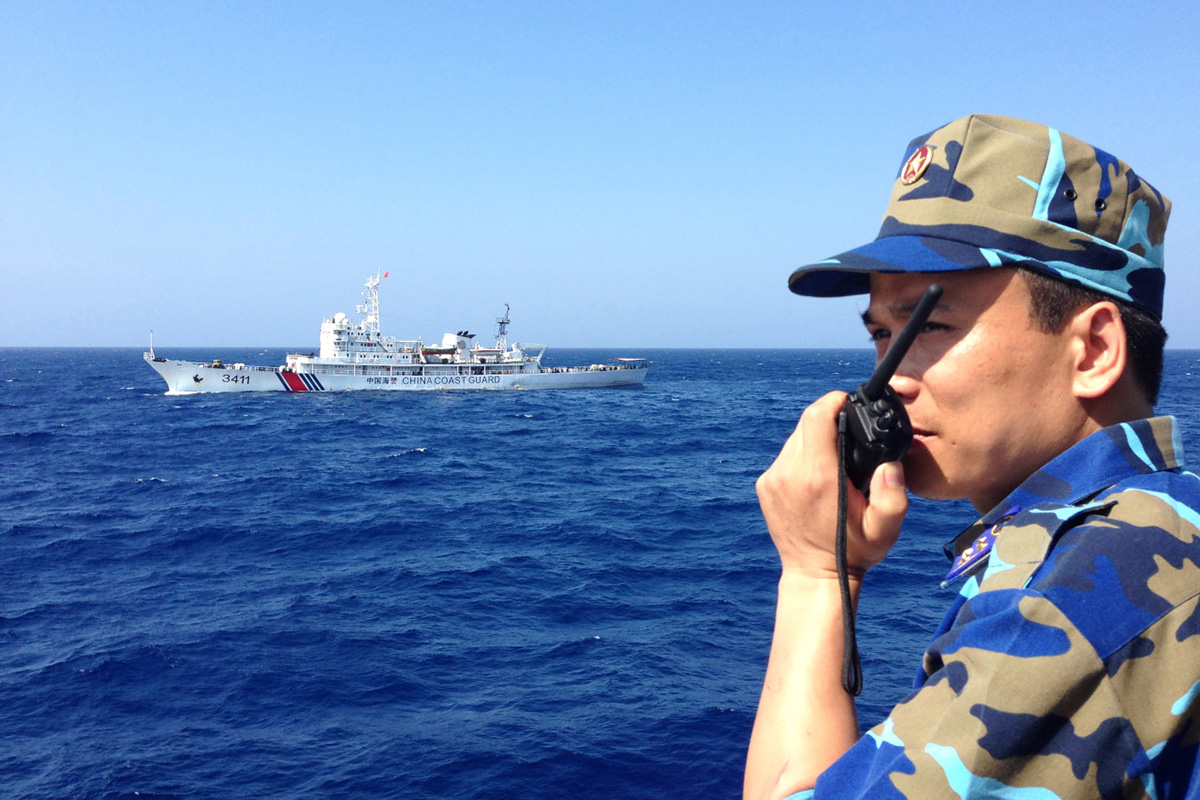
In this picture taken on May 15, 2014, Nguyen Van Hung, captain of Vietnamese Coast Guard vessel No. 8003, speaks over a walkie-talkie while being flanked by a Chinese Coast Guard ship, left, in disputed waters claimed by both China and Vietnam west of the Paracel islands, Vietnam. (Bloomberg/Oanh Ha)
300 kilograms of ivory were seized in Bangkok’s Suvarnabhumi Airport. Thailand is infamous for being a regional smuggling hub. 422 pieces of elephant tusks were found in packages on two Ethiopian Airline flights from Addis Ababa, Ethiopia. The tusks originated from Malawi’s capital, Lilongwe.
APRIL
The first of two ASEAN Summits this year took place in April in Manila. The landmark accomplishment was the signing of the ASEAN Declaration on the Role of the Civil Service as a Catalyst for Achieving the ASEAN Community Vision 2025. On the issue of the South China Sea dispute – often highlighted during such summits – member states agreed to reaffirm “the importance of maintaining peace, stability, security and freedom of navigation and over-flight in and above the South China Sea.”
A cybersecurity operation conducted by Interpol revealed 270 malware infected websites across Southeast Asia – affecting even government portals. 9,000 servers were also found to be infected – spanning Malaysia, Singapore, Thailand, the Philippines, Indonesia, Vietnam and Myanmar. There is significant threat to personal security as government websites often contain personal data of citizens.
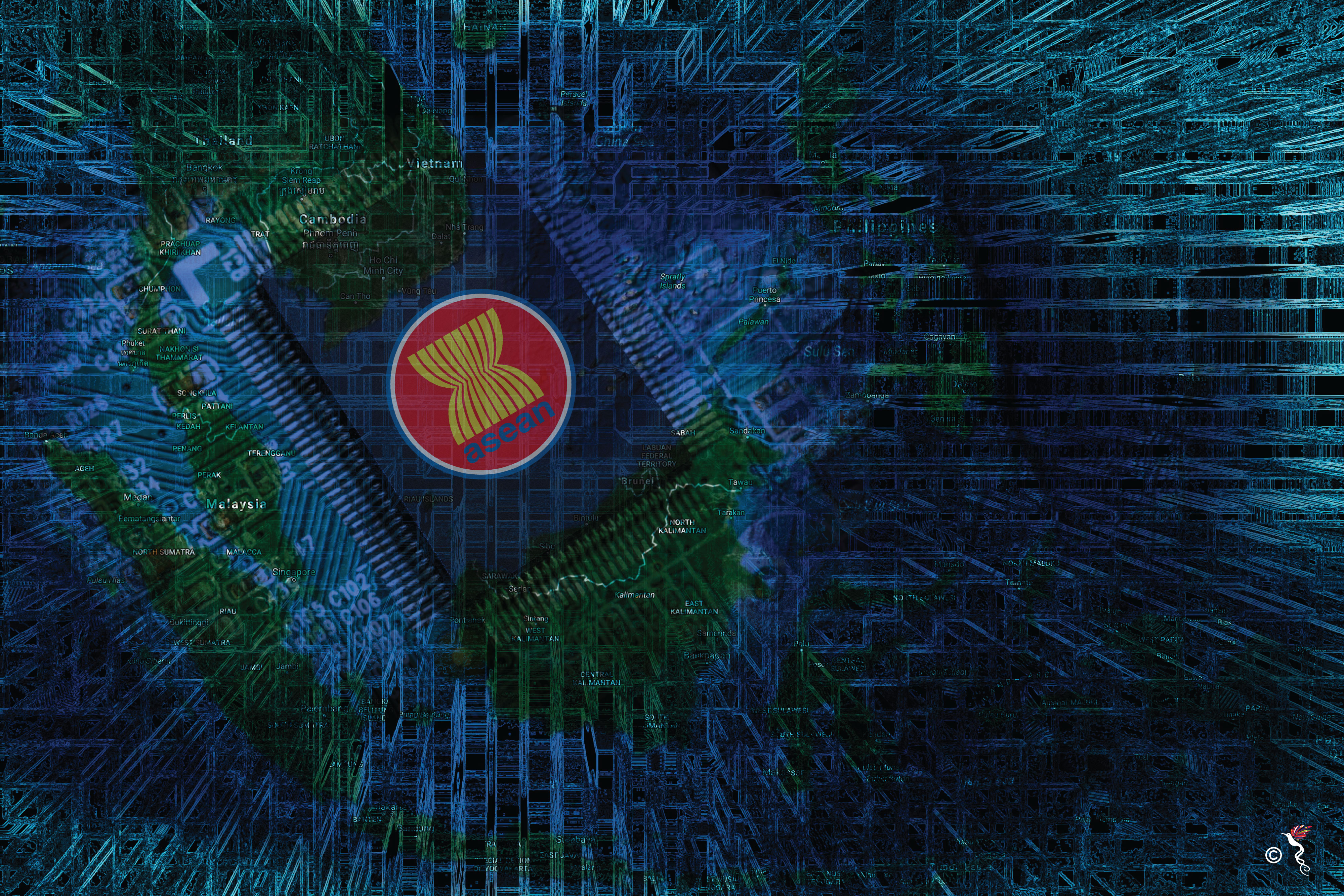
In Vietnam, a group of farmers held 38 police officers and government officials hostage in a rare show of dissent in the authoritarian state. The farmers claim that their land had been unlawfully seized by a telecommunications company owned by the military. The crisis was then mediated by Hanoi’s mayor who promised not to prosecute the villagers and to address their land grievances.
MAY
In Indonesia, religious pluralism took a hit with the sentencing of Basuki Tjahaja Purnama, fondly known as Ahok – the former Jakarta governor – to two years in prison for blasphemy. His blasphemy charge was in relation to him referencing a passage of the Islamic holy book, Quran during an election campaign in September. Hardline Muslims in the country berated the Christian who had ethnic Chinese roots because they claim that his actions insulted the holy scripture.
The biggest story to rattle the ASEAN region in May was the Marawi insurgency which took place in the southern island of Mindanao in the Philippines. The urban battle between the Philippine army and Islamic State (IS) rebels began when the forces attempted to capture Isnolin Hapinol, the leader of the rebellion. The aim of IS was to establish a wilayat (territory) in the capital of Marawi, Lanao del Sul.
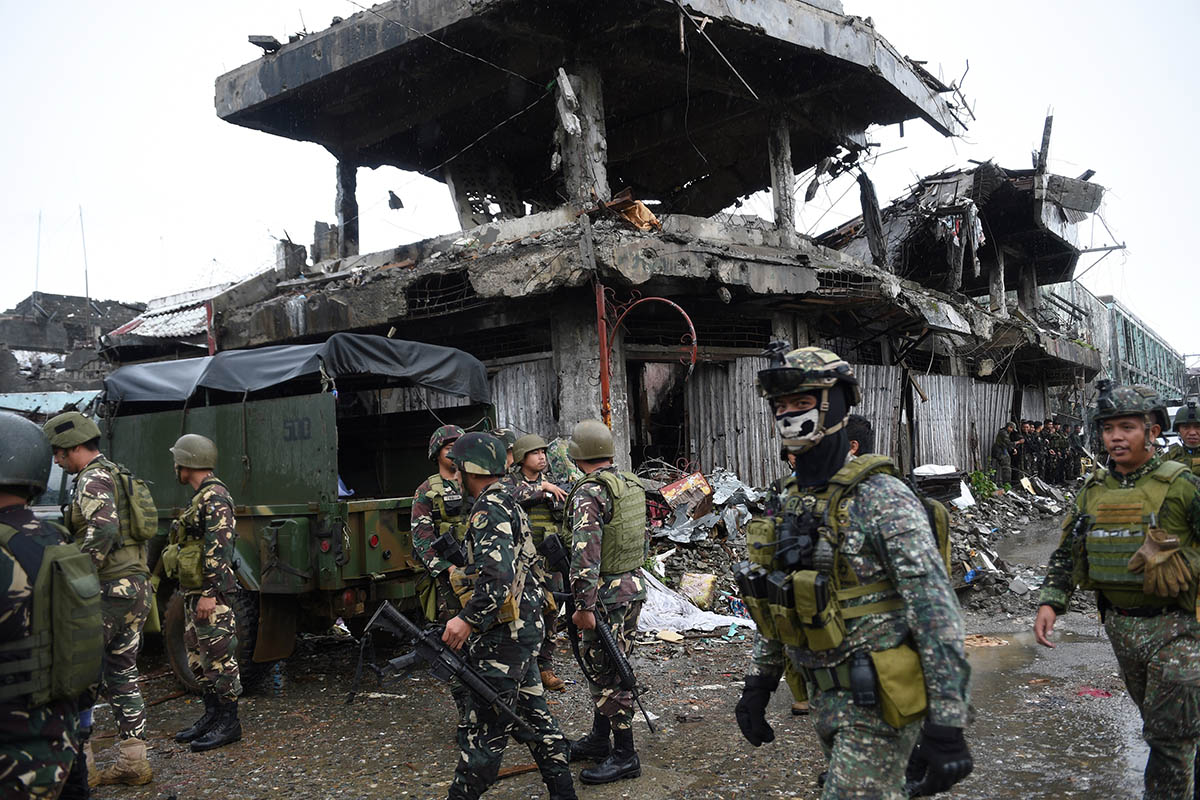
Philippine soldiers walk past bombed-out buildings after attending a ceremony where President Rodrigo Duterte declared Marawi "liberated" inside the battle area of Bangolo district in Marawi on October 17, 2017. (AFP Photo/Ted Aljibe)
Over in Malaysia, the Customs Department there recorded their largest seizure of illegal pangolin scales in the history of the nation. The scales were worth a whopping 2 million dollars in the black market and authorities believed that it would have taken 1,400 pangolins to amass that many scales. Pangolin scales are used in traditional medicine and in some cases, can also be used to make low grade methamphetamine.
JUNE
Cambodia’s local commune elections took place in June which saw the ruling Cambodian People’s Party (CPP) defeat the opposition Cambodian National Rescue Party (CNRP). However, it was a landmark election for the CNRP which managed to drastically slash the number of seats won by the CPP. The moral victory provided much needed inspiration for the CNRP to propel their national ambitions of upending the CPP in the 2018 general election.
Former US President, Barack Obama visited Indonesia – a place where he spent four years as a child. Obama moved to Jakarta when he was six after his mother married an Indonesian man following her divorce from Obama’s Kenyan father. He also met with Indonesian President, Joko Widodo at the Presidential Palace. Obama’s visit was a private vacation – he spent his days in the picturesque island of Bali and visited the historical sites in Yogyakarta.
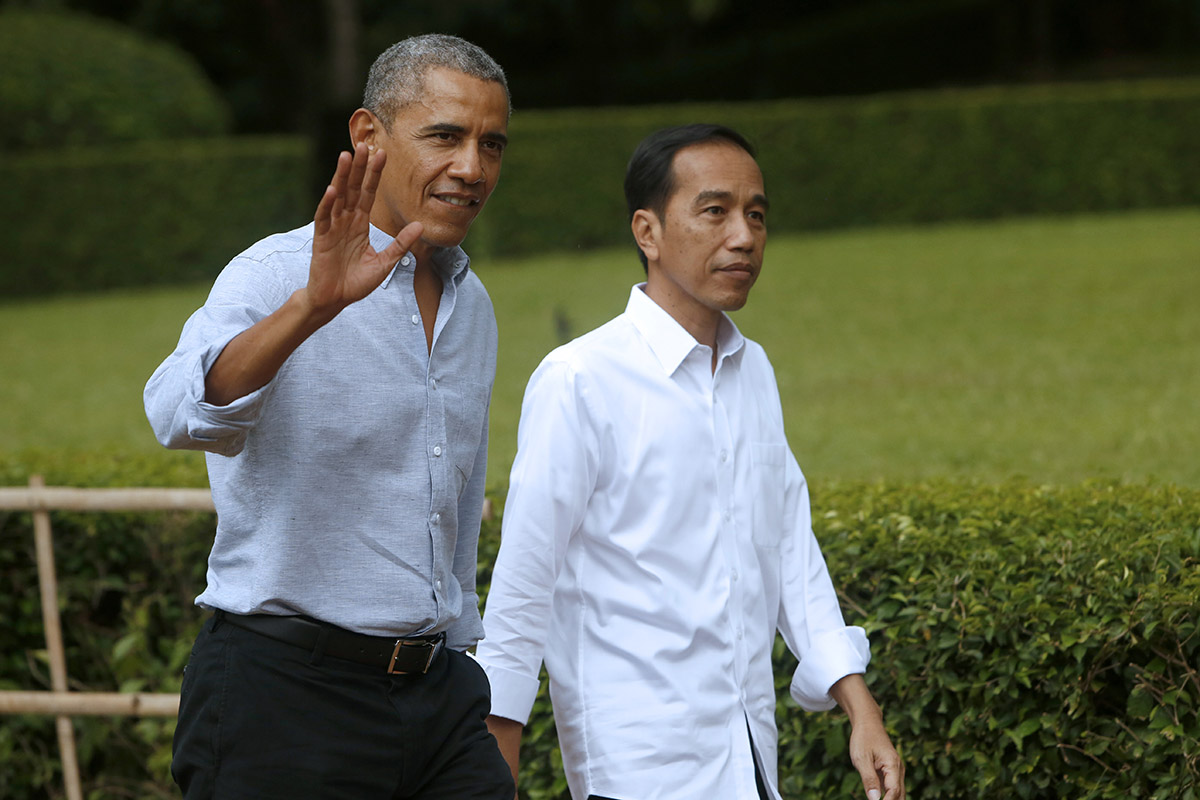
Former US president Barack Obama (L) walks next to Indonesian President Joko Widodo (R) during their a visit at the Botanical Garden adjacent to the Presidential Palace complex in Bogor on June 30, 2017. (AFP Photo/Pool/Adi Weda)
Singapore and China pledged to cooperate on the Belt Road Initiative (BRI). Singaporean Foreign Minister, Vivien Balakrishnan during his visit to Beijing reaffirmed that “Singapore has been a strong believer and supporter in the Belt and Road Initiative.” Both sides agreed to working together to improve connectivity, financial support, technology transfer and personnel training. This comes amid backlash to globalisation which both countries have eschewed.
JULY
Malaysian state-run petroleum company, Petronas dropped a 28.8 billion dollar liquified natural gas (LNG) exporting project in Canada which had been long opposed by environmentalists. The Pacific NorthWest LNG project would have built a pipeline and two LNG terminals on an island in Canada’s British Columbia. However, changes in market conditions forced a review of the project which was then deemed unfeasible due to “prolonged depressed prices and shifts in the energy industry.”
In other energy news, the Asian Developmental Bank invested 57.7 million into Thailand’s B. Grimm Power Public Company to develop renewable energy projects in Southeast Asia. Established in 1993, B. Grimm, is one of the largest private power producers in Thailand with a total capacity of 1,626 megawatts (MW), operating 12 gas-fired plants, with 5 more under development or construction. The company has recently diversified to renewable energy and currently operates 15 solar power plants.
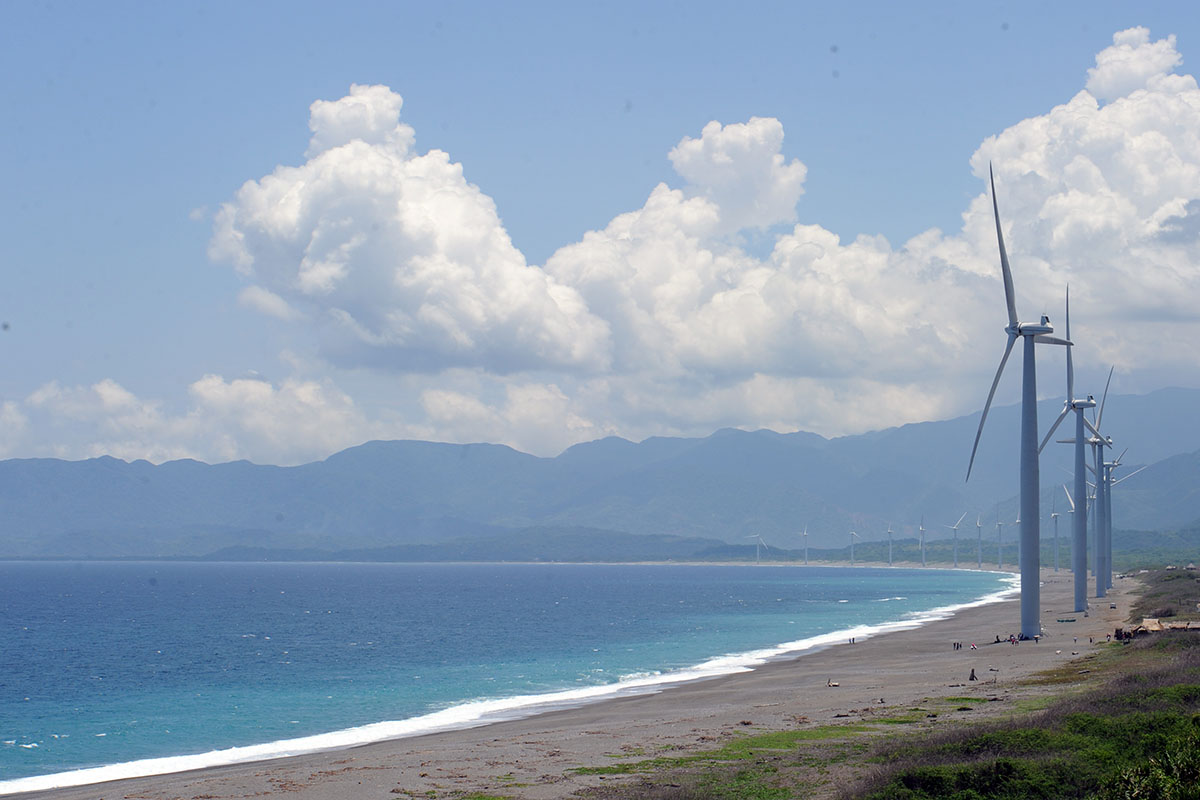
In this picture taken on May 4, 2013, a general view of the windmills on Bangui Bay in Ilocos norte, north of Manila. (AFP Photo/Ted Aljibe)
The South China Sea saw a bold move perpetrated by Vietnam which allowed a drillship in the contested parts of the waters. The drillship, Deepsea Metro I, on contract to Talisman-Vietnam, drilled about 250 miles from the Vietnamese coast. The block where it is drilling had already been leased by China to another company, Brightoil which has a close relationship with the Chinese government. For the past three years, Vietnam had avoided giving Talisman-Vietnam a license to drill – not wanting to provoke China – but had since changed its stance.
AUGUST
A US Navy destroyer, the USS John McCain collided with a Liberian oil tanker off Singaporean waters. Several sailors were injured or missing in the accident which took place in the early hours of the day. The warship was making a routine port call to Singapore after completing a Freedom of Navigation Operation (FONOP) by sailing close to one of China’s man-made islands in the South China Sea. The accident also reignited the bitter dispute between Malaysia and Singapore over the island of Batu Puteh which was used as a reference point to indicate that the accident took place in Singaporean waters.
Former Thai Prime Minister Yingluck Shinawatra fled Thailand via Cambodia to an unknown location two days prior to a scheduled ruling in her negligence case before the Supreme Court’s Criminal Division for Holders of Political Positions. She is rumoured to have absconded to Dubai where her brother, Thaksin Sinawatra – himself a former Prime Minister of Thailand – is residing.
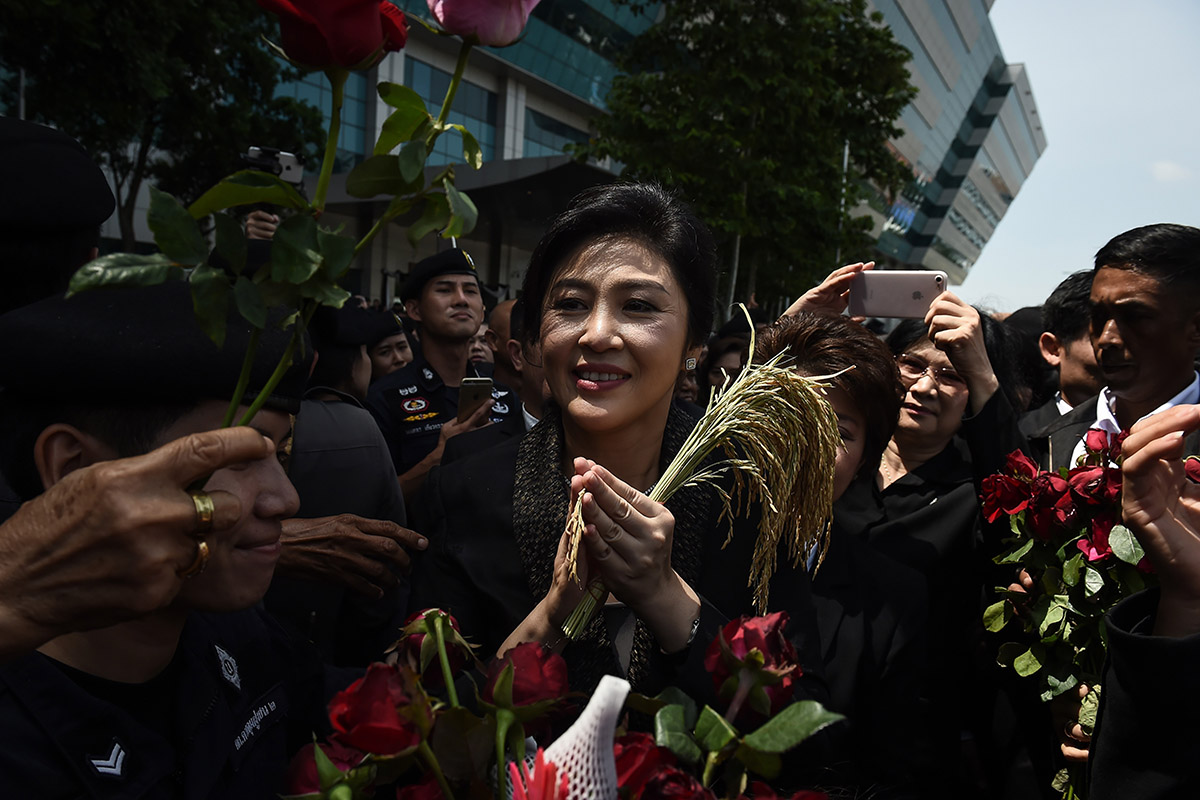
Former Thai prime minister Yingluck Shinawatra receives roses as she leaves the Supreme Court in Bangkok on August 1, 2017. (AFP Photo/Lilian Suwanrumpha)
An attack by the Arakan Rohingya Salvation Army (ARSA) on Burmese border posts provoked a brutal response by the military which left scores of Rohingya dead or wounded. It prompted a huge exodus of refugees who fled to neighbouring Bangladesh in order to escape the atrocities committed by the army. ARSA has also been responsible for previous acts of violence which they claimed to be motivated by the repression caused by the junta government.
SEPTEMBER
The start of September saw Cambodian democracy descend into darkness as authoritarian Prime Minister, Hun Sen tightened his grip on the fledging democracy. He shut down a prominent independent newspaper, Cambodia daily which was failed to comply a 6.3-million-dollar tax backlog that had to be settled within a month. He also arrested opposition leader Kem Sokha on allegations of treason.
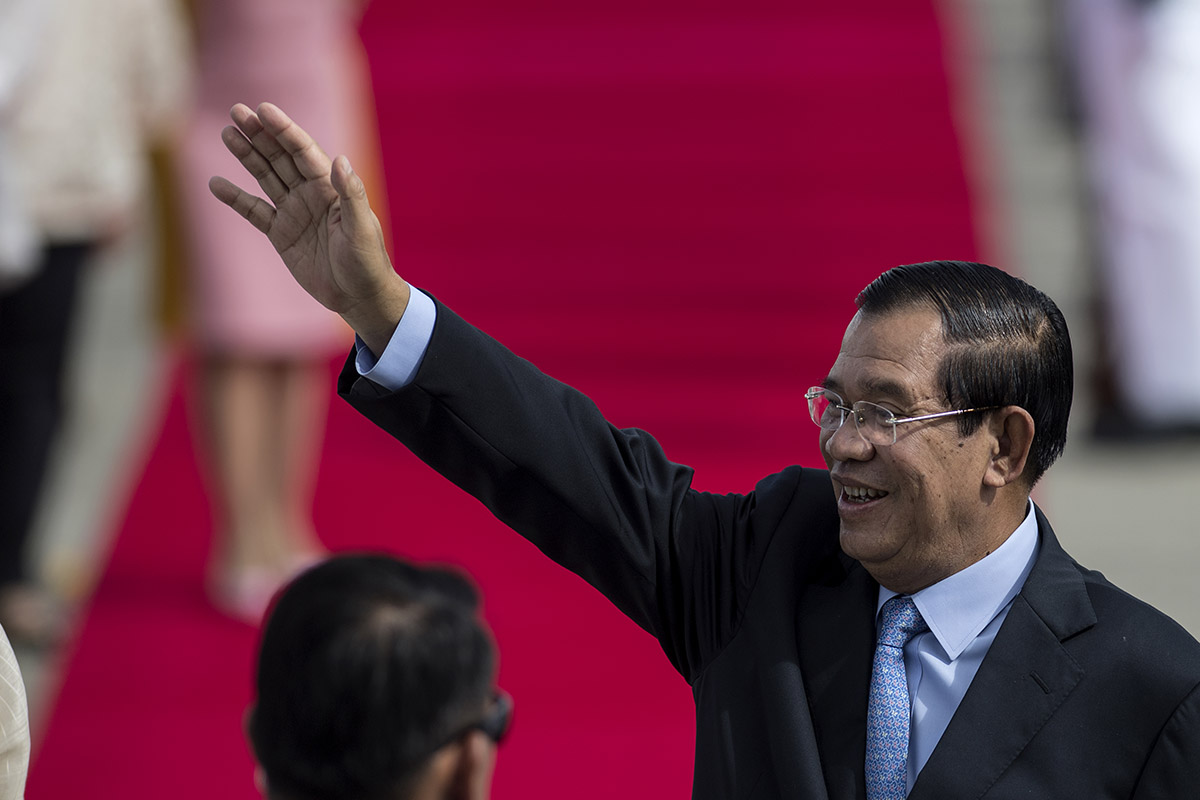
Cambodia's Prime Minister Hun Sen arrives at the Clark International Airport in Pampanga, north of Manila on November 11, 2017, ahead of the 31st Southeast Asian Nations (ASEAN) Summit. (AFP Photo/Noel Celis)
Philippine President, Rodrigo Duterte’s bloody war on drugs campaign has called into question the efficacy of Duterte’s crime fighting strategy. Duterte’s penchant for summary executions and extrajudicial killings of criminals induced waves of criticism from human rights organisations within and outside of the Philippines. In response to the deaths of teenagers which sparked the outrage, Duterte publicly apologised but he vowed never to stop this bloody war despite mounting criticism.
The world was left to contemplate nuclear destruction when North Korea tested its most powerful nuclear bomb yet. The sixth nuclear test by the hermit state saw a hydrogen bomb detonated with a 100-kiloton yield making it seven times stronger than the bomb dropped on Hiroshima. The purpose of the test, according to North Korean official sources was “to examine and confirm the accuracy and credibility” of the nuclear weapon.
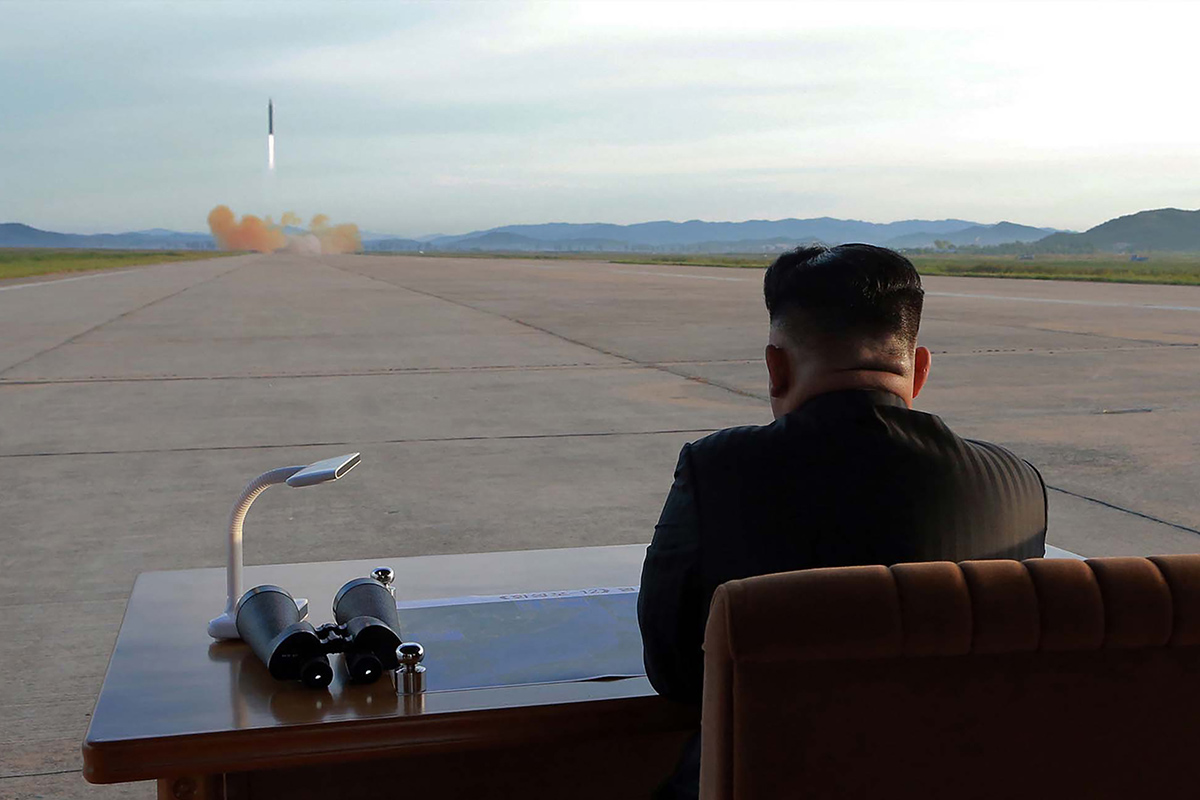
This undated picture released from North Korea's official Korean Central News Agency (KCNA) on September 16, 2017 shows North Korean leader Kim Jong-Un inspecting a launching drill of the medium-and-long range strategic ballistic rocket Hwasong-12 at an undisclosed location. (AFP Photo/KCNA via KNS)
Southeast Asia’s largest startup, Sea – formerly known as Garena – filed a one-billion-dollar Initial Public Offering (IPO) on the New York Stock Exchange. Sea is predominantly known for its presence in the gaming industry but has since branched out to e-commerce and e-payment. The company is valued at over 3.75 billion dollars and has seen its revenue grow since 2014.
OCTOBER
Lao printed its largest and longest sovereign bond with a six-trance offering in the Thai debt capital markets totalling 420 million dollars. 57.7 percent of the issue were bought by financial institutions whereas 27.8 percent were bought by high net-worth investors. 13.9 percent were booked by asset managers and the remainder 0.6 percent bought by others. The bonds were rated BBB+ by Tris Ratings, marking the first time that an issuer with that rating had sold 15-year bonds in the Thai market.
After a whole year of mourning, Thai citizens finally bade farewell to the revered King Bhumibol Adulyadej. The late king was regarded as an important father figure to a nation of over 68 million people. Throughout his 70-year rule, King Bhumibol was regarded as a demigod who embodied the values of the Buddha. He has been praised and worshipped as a force of unification in the often-tumultuous Thailand. Maha Vajiralongkorn – Bhumibol's son will replace his father as the King of Thailand.
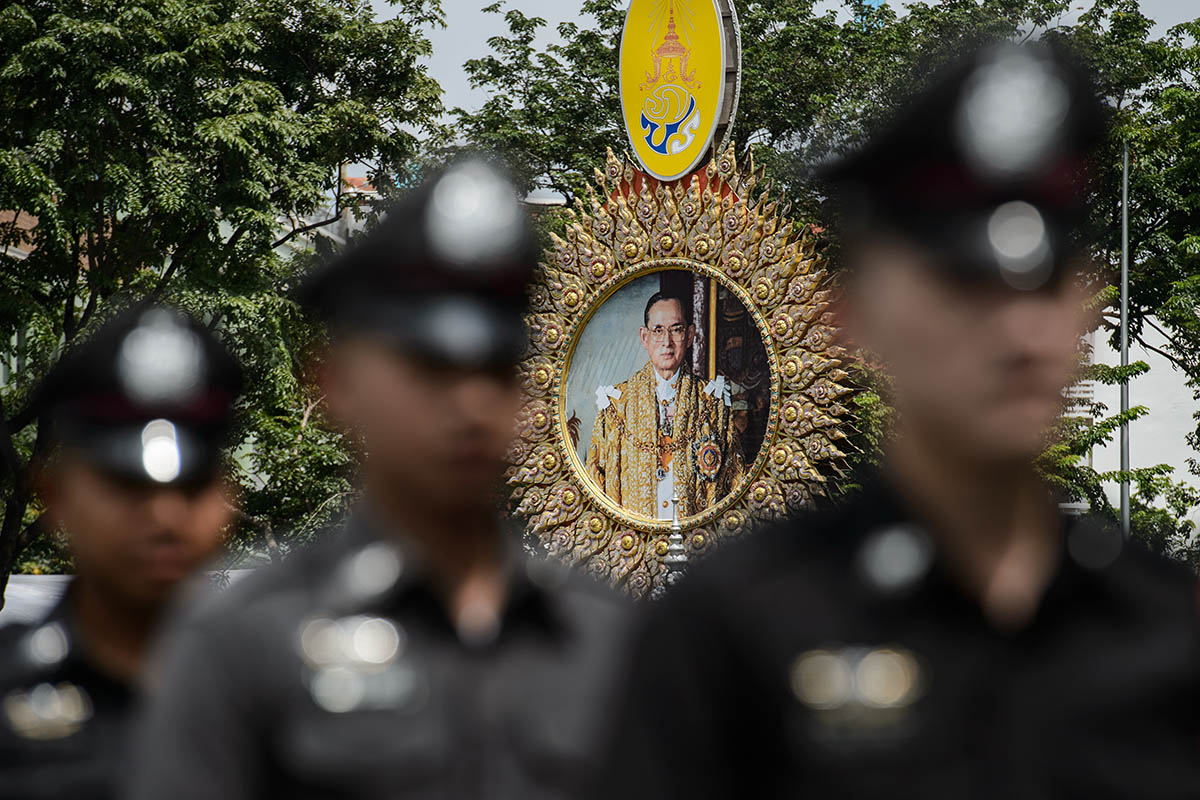
Police march past a portrait of the late Thai King Bhumibol Adulyadej before his funeral outside the Grand Palace in Bangkok on October 25, 2017. (AFP Photo/Anthony Wallace)
Duterte finally declared Marawi “liberated” after a five-month long battle with terrorist insurgents. He promised to “not let this happen again” as he stood on a gymnasium stage with a ruined roof near a tarpaulin bearing large photos of the dead militants. The siege of Marawi left more than 1,000 dead was the region’s first full-blown encounter with the terrors of the Islamic State (IS).
Jakarta, finally inaugurated its new governor after a divisive campaign between Muslims and Christians in the plural nation. Former education minister Anies Baswedan was inaugurated along with his running mate, Sandiaga Uno, a business figure after decisively beating the capital’s incumbent Christian governor Basuki Tjahaja Purnama – also known as Ahok. Ahok’s loss was due to allegations of blasphemy against him which saw him sentenced to two years in jail in May.
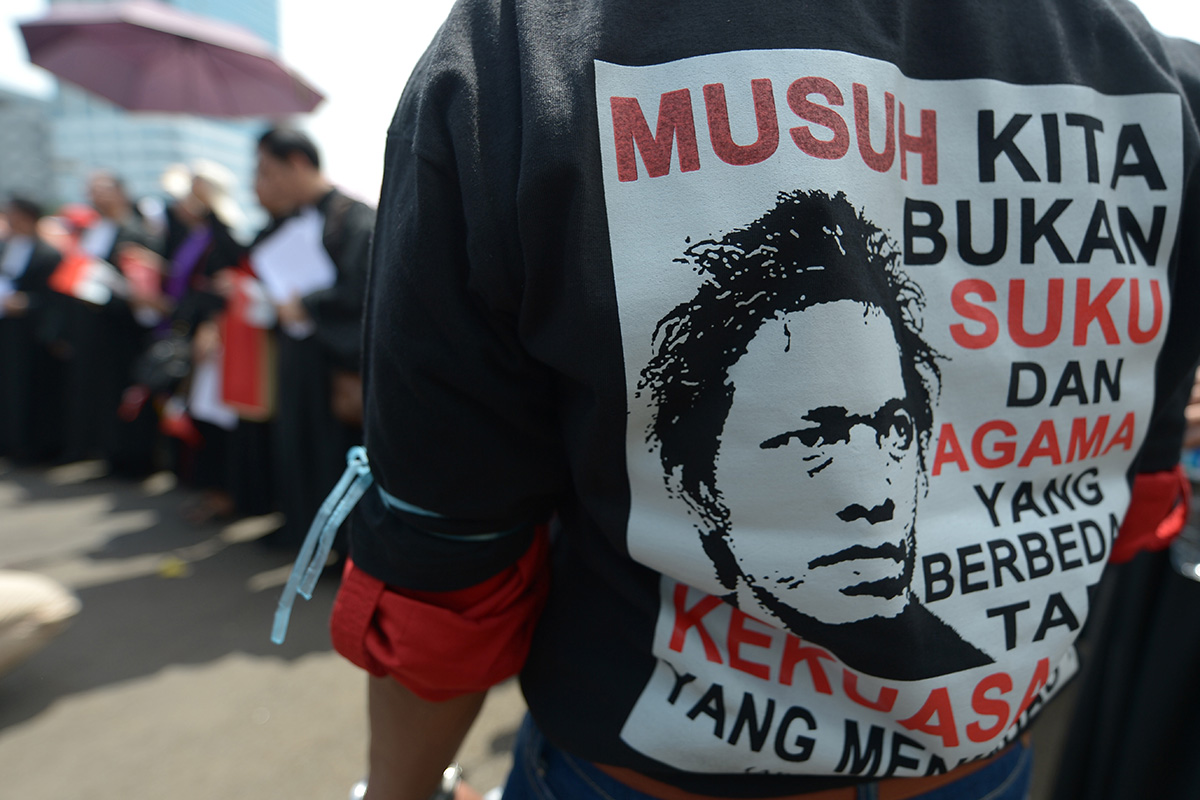
In this picture taken on April 8, 2013, an Indonesian protester (R) wears a T-shirt that reads, "Our enemy is not the diversity of faiths or races but an oppressive government" during a protest against Indonesian government failures to guarantee freedom of religion in Jakarta. (AFP Photo/Adek Berry)
NOVEMBER
The 31st ASEAN Summit was held in the Philippines from the 10th to the 14th. A key achievement in the summit this year was with regards to the South China Sea dispute. Duterte, in a press conference announced that China had agreed to be bound to a code of conduct to ensure peaceful resolution of the dispute. Besides that, the issue of terrorism also took centre stage. The "Manila Declaration To Counter The Rise of Radicalization and Violent Extremism" was released which highlighted initiatives to effectively stem terrorism in the region. Furthermore, ASEAN reaffirmed its commitment to free trade by inking a free trade agreement and bilateral investment pact with Hong Kong amid US President Donald Trump's protectionist "America First" tirades.
The treacherous Mount Agung in Bali that has been threatening to erupt for the first time since 1963 finally erupted and spewed steam plume. The phreatic eruption that occurred on Mount Agung is a steam eruption without lava ejection. Phreatic eruptions are a common precursor of volcanic activity. The eruptions are caused by groundwater flashing to steam as it is heated by magma.
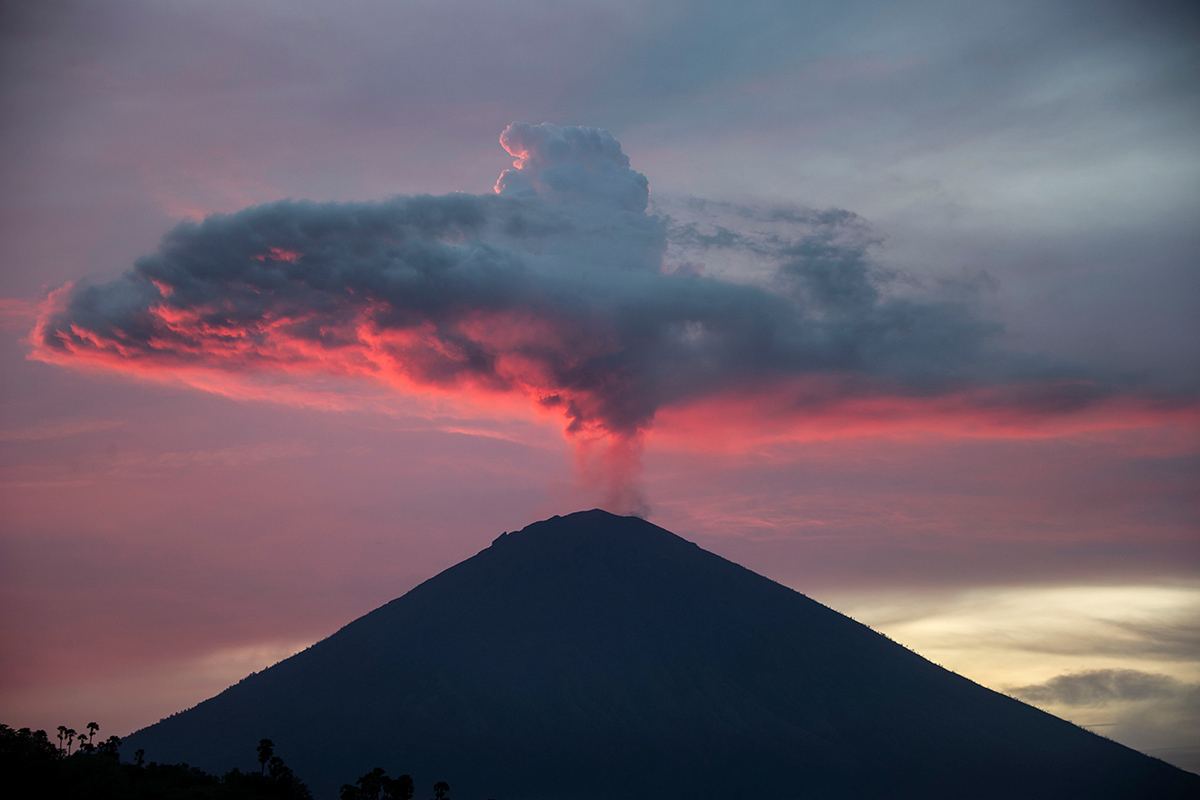
A general view shows Mount Agung from Amed beach in Karangasem on Indonesia's resort island of Bali on November 30, 2017. (AFP Photo/Juni Kriswanto)
Cambodia’s democracy was dealt a death knell when the country’s Supreme court dissolved the main opposition party, the Cambodian National Rescue Party (CNRP) and banned 118 its politicians from office for five years. The move invited criticism from governments and international human rights organisations alike.
November ended on a sullen note with the passing of a prolific ASEAN figure – Surin Pitsuwan. Pitsuwan, a Thai politician was a former Secretary General of ASEAN from 2008 till 2013. His ambitions and finesse will continue to guide the path for future ASEAN leaders as the region enters more challenging times. Though he will be dearly missed, he will never be forgotten.
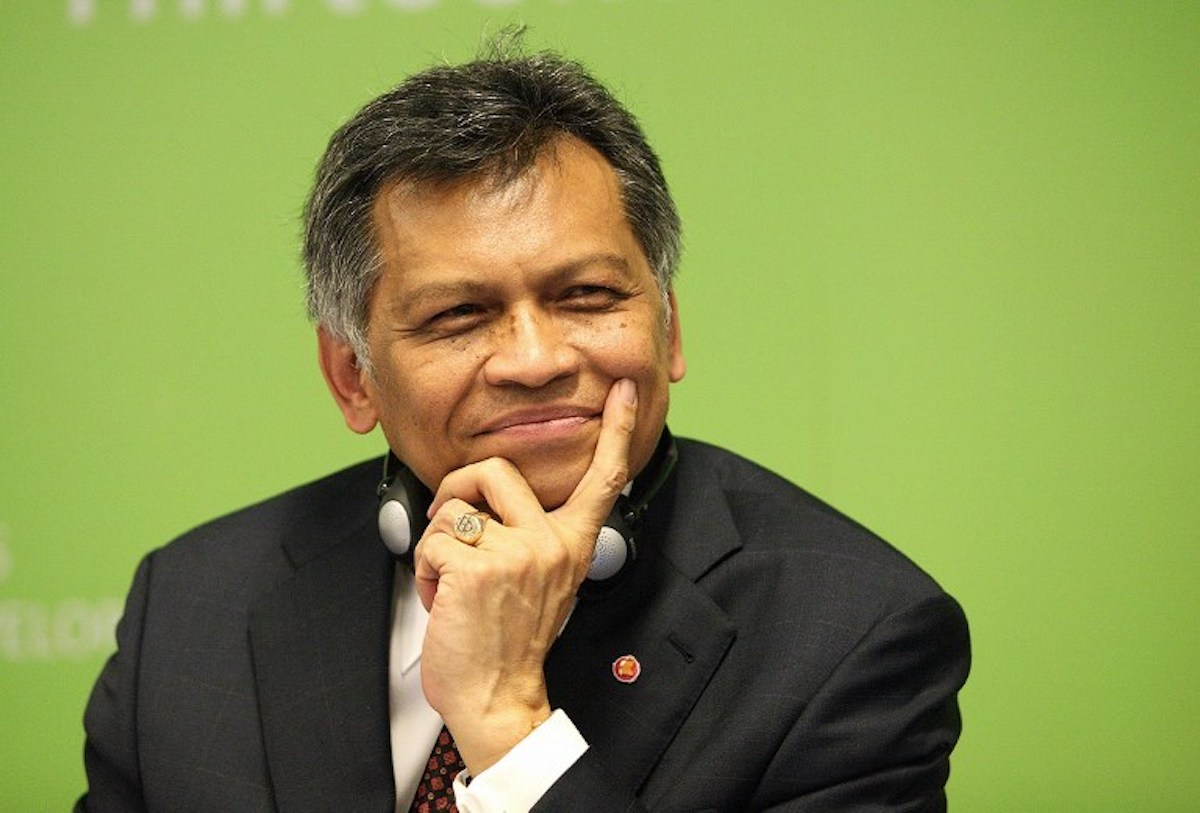
In this picture taken on December 7, 2009, former ASEAN Secretary General Surin Pitsuwan smiles as he listens to journalists' questions during a press conference on the first day of the 13th Session of the General Conference of the UNIDO, the United Nations Industrial Development Organization, in Vienna. (AFP Photo/Dieter Nagl)
DECEMBER
Floods and typhoons hit parts of the Philippines after ravaging Vietnam the previous month. Floods are the most common natural disasters in both developed and developing nations, accounting for almost 40 percent of natural disasters. The Southeast Asian region is especially prone to floods.
The Monetary Authority of Singapore (MAS), issued a warning about cryptocurrencies after a recent surge in prices sent investors flocking to bitcoin. Singapore's central bank joins a number of regulators who have warned about cryptocurrency investments, including the US Federal Reserve, which said bitcoin could threaten financial stability.
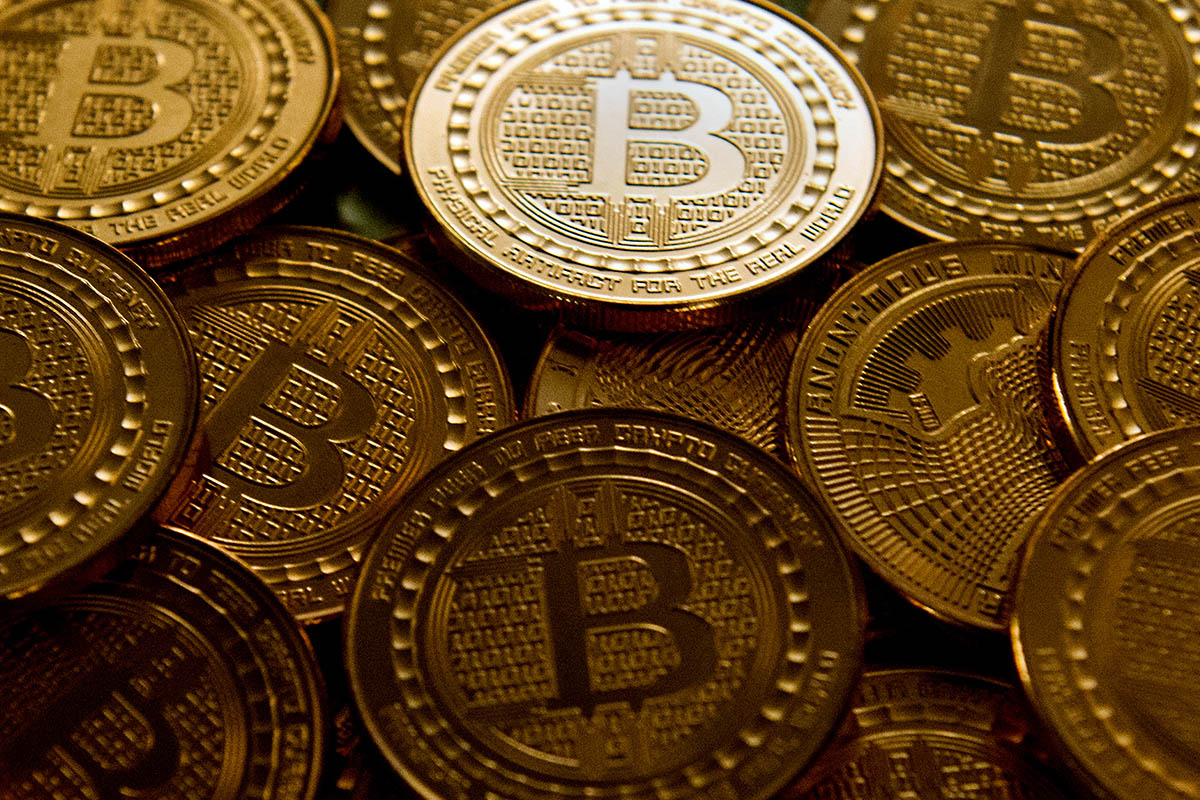
This file photo taken in Washington, DC, on May 1, 2014 shows bitcoin medals. Bitcoin makes its debut on a major exchange on December 10, 2017, a milestone for the digital currency that has some investors excited but others nervous. (AFP Photo/Karen Bleier)
Wind Energy Holdings a Thai renewables developer had raised 1.1 billion dollars to finance five new onshore wind farms in what is purported to be Southeast Asia’s biggest, most ambitious project yet. The wind farms which would be located in Thailand’s northern region will add up to 450 megawatts of energy to the national grid upon completion in early 2019. With Siam Commercial Bank financing the project, will use the most up to date technology, provided by General Electric and Vestas.
Singapore announced its priorities as ASEAN Chairman going into the new year. Under the chairmanship tagline, “Resilient and Innovative,” Singaporean Foreign Minister, Vivien Balakrishnan outlined several initiatives during the island nation’s stewardship. These include, aspirations to develop an ASEAN smart cities network, stepping up cooperation on cybersecurity threats and bolstering business opportunities for small and medium enterprises (SME).
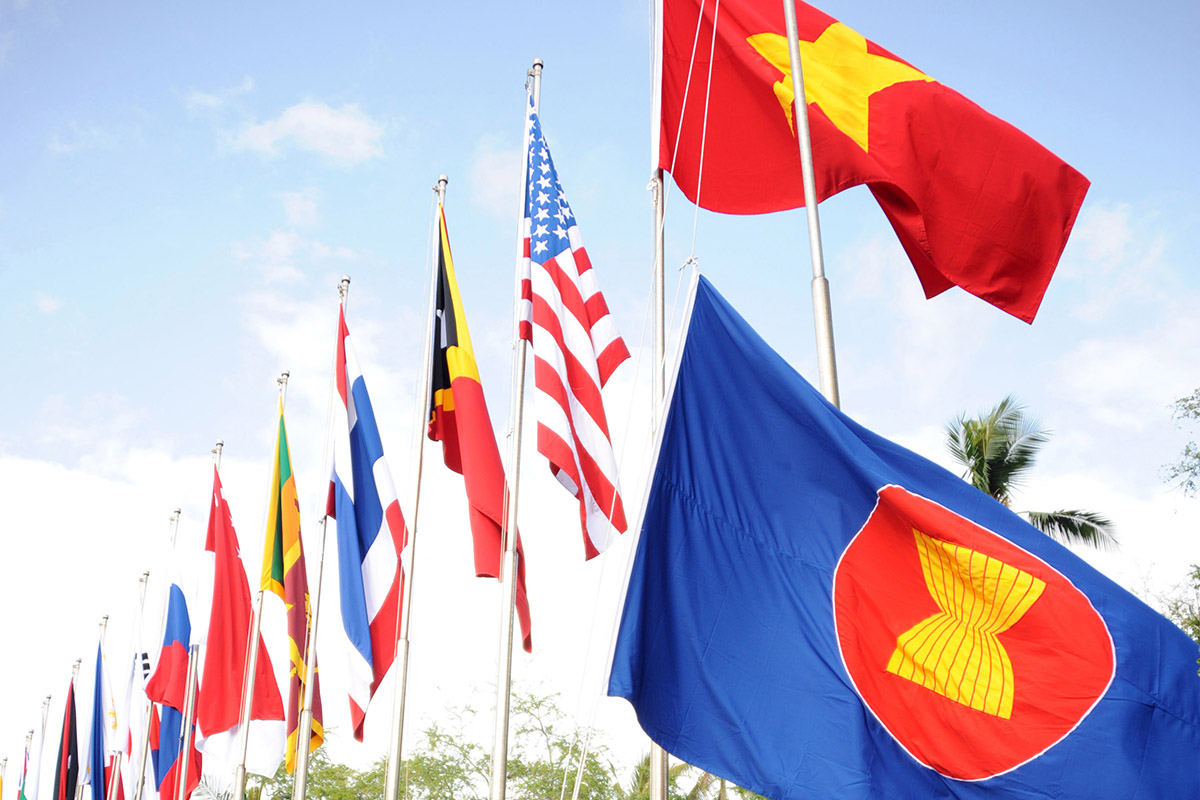
Indonesian worker raise an Association of South East Asian Nation's (ASEAN) flag surrounding the ASEAN venue in Nusa Dua on July 17, 2011. (AFP/Sonny Tumbelaka)
Here's to a 2018 that will keep us on our toes for all the right reasons. Happy New Year from all of us at The ASEAN Post!
Recommended stories:
